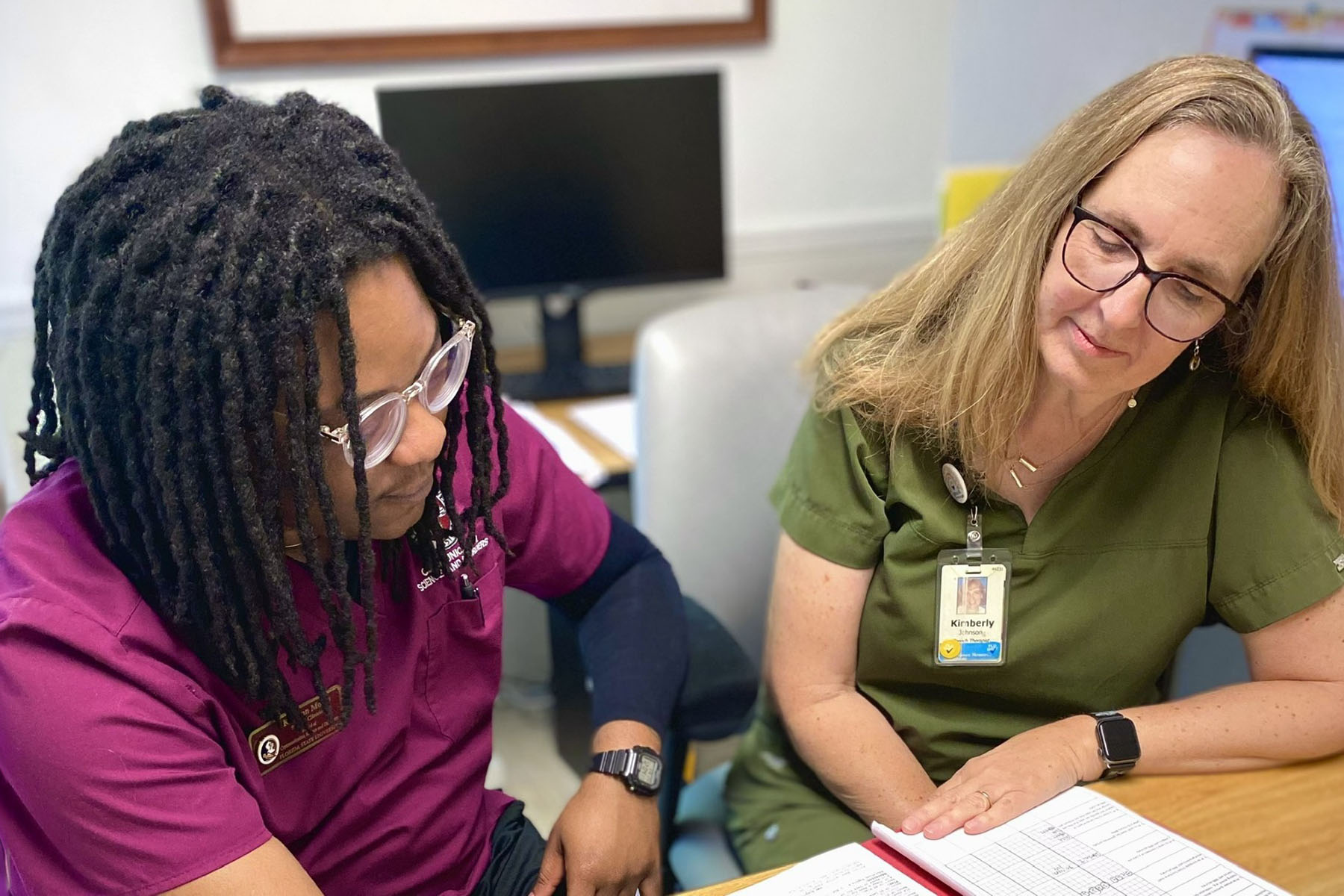
Florida State University’s School of Communication Science & Disorders is extending its reach, placing graduate students with speech-language pathology partners across the state for clinical experiences that benefit both the students and the communities they serve.
Housed in the College of Communication and Information, students in the school’s nationally ranked graduate program conduct fieldwork to gain hands-on experience and develop the skills needed to excel in the profession. The program ranks No. 10 among national public universities and No. 1 in the state of Florida, according to U.S. News & World Report.
“Our culture is changing, and there are more ways than one to earn a degree and do things,” said Tricia Montgomery, director of Clinical Education. “This is a great way for us to meet people where they are.”
The Master of Science in Communication Science & Disorders program has two main cohorts: the Tallahassee campus cohort, a full-time residential program; and a distance learning cohort, a part-time program designed for students across Florida.
The distance learning program enables students to earn a master’s degree, the entry-level qualification to become a speech-language pathologist, in their hometown while participating in various externship opportunities, including medical, school and private practice sites, to meet professional certification requirements.
The beauty of our distance learning program is that we can tailor it to our students. We have a course sequence, but we can adapt clinical education to allow people who wouldn’t normally be able to participate in a graduate program to do so right in their community.
— Tricia Montgomery, director of Clinical Education
“The beauty of our distance learning program is that we can tailor it to our students,” Montgomery said. “We have a course sequence, but we can adapt clinical education to allow people who wouldn’t normally be able to participate in a graduate program to do so right in their community.”
Master’s student Kennon Moses shares how the distance learning program has assisted him in taking an unconventional route to obtaining his degree.
“This program is very special and provides opportunities for students to pursue their passions and obtain a master’s degree without taking the traditional route, which is not always available to everyone,” Moses said. “Being able to partner with clinical sites in the area is a worthwhile asset possessed by the distance learning program that helps strengthen the connection between coursework and clinical practicum.”
The school maintains strong ties with clinical sites and community members through its many partnered facilities and programs statewide, and they aim to expand alongside the larger FSU Health initiative.
“While statistics show that many speech-language pathologists spend some time in their career working in public schools, there are also many who work in other settings, such as health care, rehab teams, hospitals, skilled nursing facilities and private practices,” Montgomery said.
Speech-language pathology Distance Learning Graduate Program Coordinator Jinger Deason emphasized how the school has implemented various strategies to secure clinical rotation sites for its graduate students.
“We’ve employed a lot of strategies, from cold calls, to inviting our students to look in their communities,” Deason said. “We teach them how to network with professionals in their community and connect with places that might have a meaningful connection for clinical rotations.”
Lauren Santoro, a graduate student in the distance learning program, is grateful that the program is adaptable to meet students where they are in their lives and communities.
“Having access to a program that partners with local clinical sites has been invaluable,” Santoro said. “It has allowed me to continue working as a speech-language pathology assistant while pursuing my master’s degree, providing the flexibility to balance work and study. It provided me with hands-on experience that I could immediately apply to my studies.”
Since the COVID-19 pandemic, public health norms have significantly changed. Embracing this opportunity, the speech-language pathology program focuses on being proactive, not reactive.
“We’re starting to see some changes nationally where they’re looking at adopting new things.” Montgomery said. “It’s our job to stay at the forefront of what’s going on. We’re constantly reviewing our curriculum to ensure we’re tracking competencies, staying ahead of national trends and ensuring our students receive proper supervision and mentorship.”
For more information about FSU’s speech-language pathology program visit, School of Communication Science & Disorders.



